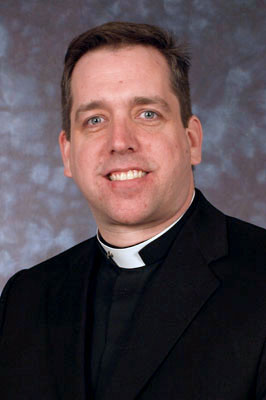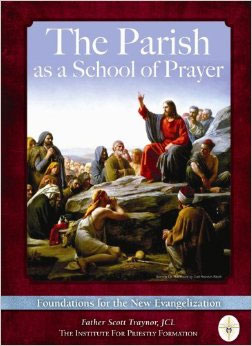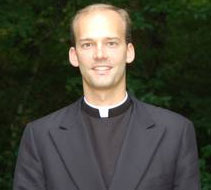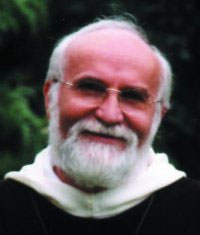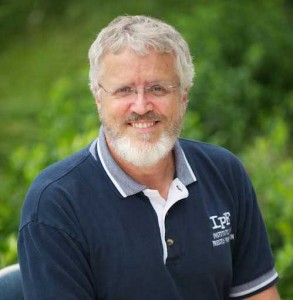SP#9 The School of Prayer: Foundations for the New Evangelization:
The Keys to Good Discernment
Podcast: Play in new window | Download (Duration: 32:20 — 29.6MB) | Embed
Subscribe: Apple Podcasts | Spotify | Amazon Music | Android | Pandora | iHeartRadio | JioSaavn | Podchaser | Gaana | Podcast Index | Email | TuneIn | Deezer | Anghami | RSS | More
Fr. Scott Traynor talks about the hallmarks of encounter with the Holy Spirit and what can be a deception. How can the keys to good discernment effect my service to the Church and to the World. What is the difference between “managing and/or deciding” and authentic “discernment”? What is wrong with the phrase “What Would Jesus Do?”. The better question is “Jesus, What ARE you doing?”. Listening is the key for not only the one discerning. How does the “school of prayer”, the parish, becomes an aid to the seeker. How is the pastor a part of the process?
In Father Scott Traynor’s book, Blessed John Paul II’s memorable call to make of the parish a school of prayer takes on flesh and becomes concretely attainable. Those you read these faith-filled pages will find renewed desire to create such parishes and a clear road-map toward this goal.
–Father Timothy Gallagher, OMV
Father Scott Traynor received his STB from the Pontifical Gregorian University and his JCL from Catholic University of America. He has been an instructor and spiritual director for many of the programs at the Institute for Priestly Formation.
Father Traynor is a retreat master and spiritual director who has travelled the country as a speaker at various conferences, diocesan gatherings and national conferences.. He is especially sought after to present on the topics of prayer, discernment and priestly identity and mission.
He serves the Rector of the St. John Vianney Theological Seminary in Denver Colorado.

